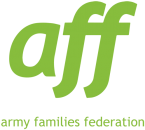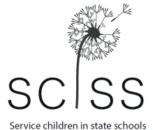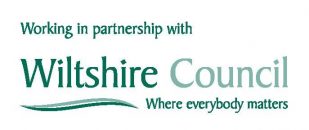Reviewing the Impact of the Service Pupil Premium in Plymouth
Posted in Views by Victoria Fisher

In a city with a proud military heritage, ensuring that children from Armed Forces families are supported in school is a key priority. Michael House, Health and Wellbeing in Education Officer for Plymouth, has authored a new report titled the Plymouth Service Pupil Premium (SPP) Review, providing a timely and insightful look into how schools are using this vital funding stream. We spoke with Michael to learn more about the motivations behind the review, its key findings, and what the future may hold for Plymouth—and potentially for other local authorities across the UK.
What motivated this review of the Service Pupil Premium (SPP) in Plymouth? “The review was undertaken following interest from a local Member of Parliament and partner organisations,” Michael explains. “There was a growing desire to better understand how targeted funding—specifically the Service Pupil Premium—is being used to support service family children and young people across Plymouth.”
How many schools are there in Plymouth, and what proportion of pupils are from Service families? “At the time of the review,” Michael says, “there were 96 schools in total—comprising 19 secondary, 67 primary, 2 infant, 7 special, and 1 alternative provision school. Of the schools within the review, around 7% of children and young people were in receipt of the Service Pupil Premium.”
How did you go about selecting schools for the review? “We aimed to gain a snapshot of provision across the city,” he shares. “The review scrutinised the provision in 32 schools—including 2 infant, 27 primary, and 3 secondary schools—through survey responses and website reviews. This represents roughly one-third of all Plymouth schools. Survey invitations were shared through the ‘Young Carers & Service Family Lead’s Network’, and others were selected at random for web reviews.”
Were there any clear trends in how schools are using SPP funding effectively? Michael notes that a significant figure—approaching £1 million—enters the city’s education system annually through the SPP, but no central coordination currently exists for how it’s used.
“Many schools are using the funding well,” he says. “They understand the needs of their Service pupils, often through consultation, and provide a wide range of pastoral and academic support. It was encouraging to see many schools clearly communicating this support on their websites—raising awareness and showcasing their commitment to Service families.”
However, there’s room for growth. “While some schools communicate how they monitor progress for this cohort, few include specific attainment or attendance data for Service pupils in their Pupil Premium statements.”
What steps could be taken to improve the use and accountability of SPP in schools? Michael points to new national guidance on the horizon. “The local authority is currently developing plans to implement the Service Pupils in Schools: Non-statutory Guidance (DfE / MoD 2025). Enhancing outcomes for Service children through effective use of SPP will be a core element, alongside promoting the excellent Thriving Lives Toolkit as a key self-evaluation tool.”
What are the benefits of taking a city-wide, collaborative approach to supporting Service pupils? “A whole-school, whole-city approach allows us to draw on the skills, experience, and opportunities offered by a range of organisations,” Michael says. “Internally, Plymouth operates a ‘One Children’s Service’ model—focused on collaboration, efficiency, and improving experiences for all children. Externally, the local authority plays a key role in convening networks to unlock collaborative advantage.”
What advice would you offer to other local authorities exploring similar approaches? Michael’s advice is rooted in relationships and understanding. “Start by getting to know the families and their situations as early as possible. Supporting small groups—or sometimes even individuals—can be difficult to resource, but Multi-Academy Trusts offer great opportunities for collaboration and shared support.”
“Recognising the challenges posed by deployment cycles and transitions is crucial, as is having robust procedures in place. A dedicated champion within each school can drive progress and act as an advocate for Service families. Ultimately, a meaningful whole-school approach—with inclusive policies, tailored provision, and a shared ethos—creates the sense of belonging and safety that helps Service children thrive.”
A Model for Others
Plymouth’s review shines a light on both the opportunities and challenges of effectively using the Service Pupil Premium. With strong leadership, collaborative networks, and a focus on meaningful practice, the city is setting an example for others looking to better support Armed Forces families in education.
Access the report below.

































